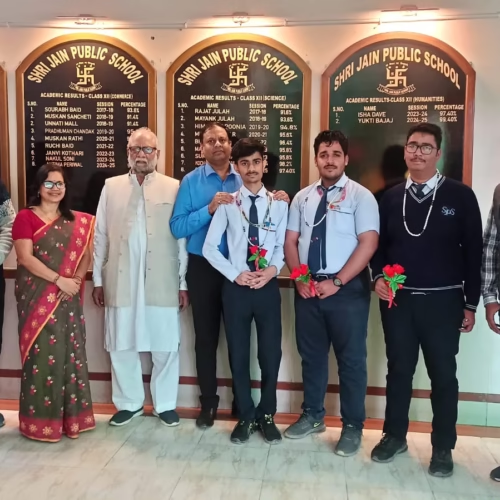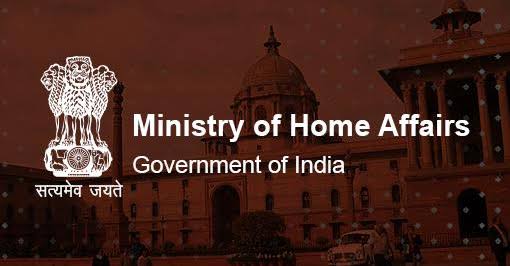BY DEFENCE JOURNALIST SAHIL | T.I.N. NETWORK
PM Narendra Modi Meets Chinese Foreign Minister Wang Yi: Dialogue, Diplomacy and the Road to Tianjin
New Delhi | August 2025 — Prime Minister Narendra Modi held an important meeting with Chinese Foreign Minister Wang Yi in New Delhi, marking yet another significant step in the ongoing engagement between Asia’s two largest neighbours. The talks come against the backdrop of evolving global geopolitics, persistent challenges on the boundary front, and the upcoming Shanghai Cooperation Organisation (SCO) Summit in Tianjin, which is expected to bring the two leaders — Prime Minister Modi and President Xi Jinping — face-to-face once again.
In a statement following the meeting, Prime Minister Modi recalled his last encounter with President Xi in Kazan in 2024, noting that since then, “India-China relations have made steady progress guided by respect for each other’s interests and sensitivities.” He added that he looked forward to his next meeting with the Chinese President at the SCO Summit in Tianjin, underlining that “stable, predictable, constructive ties between India and China will contribute significantly to regional as well as global peace and prosperity.”
Invitation from Xi Jinping and Diplomatic Warmth
During the meeting, Wang Yi handed over a formal message and invitation from President Xi Jinping to Prime Minister Modi for the upcoming Tianjin SCO Summit. According to officials, Wang Yi also conveyed his positive assessment of the bilateral meetings he held with External Affairs Minister Dr. S. Jaishankar and the 24th Meeting of the Special Representatives mechanism on the boundary issue, which he co-chaired with National Security Advisor Ajit Doval.
Wang Yi reportedly conveyed to Prime Minister Modi that China values constructive engagement with India and is committed to addressing challenges through dialogue. His emphasis on strengthening “mutual trust and pragmatic cooperation” was read in New Delhi as a signal of Beijing’s willingness to sustain a stabilising trajectory despite the unresolved complexities of the border situation.
Border Issues and India’s Firm Message
Prime Minister Modi, while welcoming the dialogue, made it clear that peace and tranquillity along the Line of Actual Control (LAC) remain the essential foundation for the overall relationship. He reiterated India’s commitment to finding a “fair, reasonable and mutually acceptable” resolution of the boundary question through established mechanisms, stressing that such progress would open new avenues of bilateral cooperation across trade, connectivity, and multilateral frameworks.
This position reflects India’s long-standing emphasis that the future of India-China ties cannot be separated from the border question — a view that has only strengthened after the events of Galwan in 2020 and subsequent standoffs.
The SCO Summit: A Strategic Setting
The SCO Summit in Tianjin is expected to be a critical moment for India-China ties. Both leaders will share the stage at a time when global strategic alignments are shifting, with the West intensifying its focus on the Indo-Pacific, Russia pushing for multipolarity, and China balancing its outreach across Eurasia.
Diplomatic observers in New Delhi note that while both sides remain cautious, the fact that communication channels at the highest level remain active is itself a positive signal. The Modi government’s consistent emphasis on sovereignty, national interest, and regional stability has been echoed in its approach to China, where cooperation is welcomed but not at the cost of security compromises.
Broader Context: India’s Strategic Balancing
India’s engagement with China also needs to be seen in the broader framework of its multi-vector foreign policy. While deepening strategic partnerships with the US, France, and other Indo-Pacific democracies, India continues to keep channels of dialogue open with China and Russia, recognising the realities of geography and the importance of continental partnerships.
For Beijing, stability in ties with New Delhi is equally crucial, especially as it seeks to strengthen the SCO’s relevance and expand its Belt and Road footprint, while also addressing its own economic challenges at home.
Looking Ahead
The Modi-Wang Yi meeting highlights a pragmatic phase in India-China relations. While tensions and trust deficits remain, the mutual acknowledgement that dialogue is necessary signals that both sides are willing to navigate complexity with diplomacy.
As the SCO Summit approaches, the spotlight will once again be on Tianjin — not just for what transpires in public between Prime Minister Modi and President Xi, but also for what signals are sent behind closed doors about the future of one of the world’s most consequential bilateral relationships.
BY DEFENCE JOURNALIST SAHIL | T.I.N. NETWORK
प्रधानमंत्री नरेंद्र मोदी और चीनी विदेश मंत्री वांग यी की मुलाकात: संवाद, कूटनीति और तियानजिन की राह
नई दिल्ली | अगस्त 2025 — प्रधानमंत्री नरेंद्र मोदी से चीन के विदेश मंत्री वांग यी की नई दिल्ली में अहम मुलाकात हुई। यह वार्ता ऐसे समय में हुई जब वैश्विक भू-राजनीति बदल रही है, सीमा पर शांति को लेकर लगातार चुनौतियां बनी हुई हैं और आने वाला शंघाई सहयोग संगठन (SCO) शिखर सम्मेलन तियानजिन भारत-चीन संबंधों के लिए निर्णायक मंच बनने जा रहा है।
प्रधानमंत्री मोदी ने बैठक के बाद कहा कि पिछले वर्ष कज़ान में राष्ट्रपति शी जिनपिंग से मुलाकात के बाद से “भारत-चीन संबंध परस्पर हितों और संवेदनशीलताओं के सम्मान के आधार पर निरंतर प्रगति कर रहे हैं।” उन्होंने आगे कहा कि वे तियानजिन में SCO सम्मेलन के दौरान होने वाली अगली मुलाकात को लेकर आशान्वित हैं। प्रधानमंत्री ने यह भी जोड़ा कि “भारत और चीन के बीच स्थिर, पूर्वानुमेय और रचनात्मक संबंध एशिया ही नहीं, बल्कि पूरी दुनिया की शांति और समृद्धि में महत्वपूर्ण योगदान देंगे।”
राष्ट्रपति शी का संदेश और निमंत्रण
मुलाकात के दौरान वांग यी ने प्रधानमंत्री मोदी को राष्ट्रपति शी जिनपिंग का संदेश और तियानजिन SCO शिखर सम्मेलन के लिए औपचारिक निमंत्रण सौंपा। उन्होंने अपने इस दौरे के दौरान विदेश मंत्री डॉ. एस. जयशंकर के साथ हुई बैठक और राष्ट्रीय सुरक्षा सलाहकार अजीत डोभाल के साथ सह-अध्यक्षता में हुई 24वीं विशेष प्रतिनिधि बैठक पर भी सकारात्मक आकलन साझा किया।
वांग यी ने इस दौरान यह भी कहा कि चीन भारत के साथ रचनात्मक संवाद को महत्व देता है और चुनौतियों का समाधान बातचीत से चाहता है। उन्होंने “आपसी विश्वास और व्यावहारिक सहयोग” को मज़बूत करने की बात रखी, जिसे नई दिल्ली ने इस संकेत के रूप में देखा कि बीजिंग सीमा विवाद के बावजूद स्थिरता बनाए रखने का इच्छुक है।
सीमा मुद्दे पर भारत का स्पष्ट रुख
प्रधानमंत्री मोदी ने इस बातचीत के दौरान स्पष्ट किया कि भारत-चीन संबंधों की नींव शांति और सीमा पर स्थिरता है। उन्होंने दोहराया कि भारत सीमा विवाद का समाधान “न्यायसंगत, उचित और परस्पर स्वीकार्य” तरीके से करना चाहता है। उनका कहना था कि सीमा पर प्रगति होने से ही व्यापार, संपर्क और बहुपक्षीय सहयोग जैसे क्षेत्रों में नई संभावनाएं खुल सकती हैं।
यह रुख भारत का वर्षों से चला आ रहा है और गलवान (2020) की घटना के बाद यह और भी दृढ़ हो गया है।
तियानजिन शिखर सम्मेलन: एक रणनीतिक अवसर
आगामी SCO शिखर सम्मेलन तियानजिन भारत-चीन संबंधों के लिए अहम मंच होगा। यहां दोनों नेता ऐसे समय में एक साथ होंगे जब वैश्विक समीकरण तेजी से बदल रहे हैं। रूस बहुध्रुवीय व्यवस्था को आगे बढ़ा रहा है, पश्चिम इंडो-पैसिफिक पर फोकस कर रहा है और चीन यूरेशिया में अपने प्रभाव को बढ़ाने की कोशिश कर रहा है।
राजनयिक मानते हैं कि भले ही सावधानी बरती जा रही हो, लेकिन शीर्ष स्तर पर संवाद का जारी रहना अपने आप में सकारात्मक संकेत है।
व्यापक परिप्रेक्ष्य: भारत की रणनीतिक संतुलन नीति
भारत का यह संवाद उसकी बहुआयामी विदेश नीति का हिस्सा है। एक ओर भारत अमेरिका, फ्रांस और अन्य इंडो-पैसिफिक लोकतंत्रों के साथ गहरे रिश्ते बना रहा है, वहीं दूसरी ओर चीन और रूस के साथ संवाद बनाए हुए है। यह भौगोलिक यथार्थ और महाद्वीपीय साझेदारियों के महत्व को दर्शाता है।
चीन के लिए भी भारत के साथ स्थिर संबंध ज़रूरी हैं, खासकर जब वह SCO को मज़बूत करना चाहता है और बेल्ट एंड रोड पहल को आगे बढ़ाना चाहता है।
मोदी-वांग यी की यह मुलाकात भारत-चीन संबंधों में एक व्यावहारिक दौर को दर्शाती है। मतभेद और अविश्वास अभी भी मौजूद हैं, लेकिन दोनों पक्षों का यह मानना कि बातचीत ज़रूरी है, एक अहम संकेत है।
तियानजिन शिखर सम्मेलन अब केंद्र में होगा — जहां न केवल प्रधानमंत्री मोदी और राष्ट्रपति शी की सार्वजनिक मुलाकात महत्वपूर्ण होगी, बल्कि बंद दरवाजों के पीछे होने वाली वार्ताएं भी तय करेंगी कि आने वाले वर्षों में दुनिया के सबसे अहम द्विपक्षीय रिश्तों में से एक किस दिशा में आगे बढ़ता है।









Add Comment